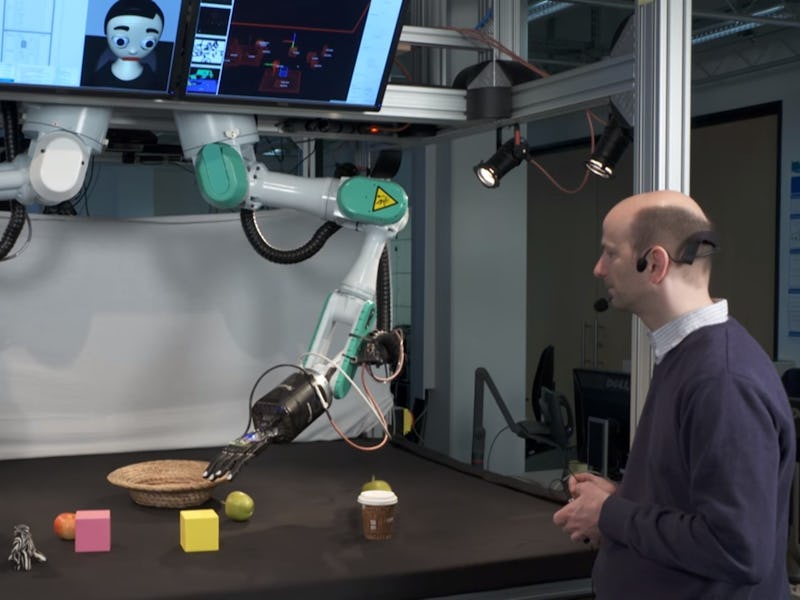Researchers Reveal a Robotic Hand With a Surprisingly Human Quality

A team of researchers from Germany’s Bielefeld University has debuted a new robot — which it has named Flobi — that can grab and lift delicate objects without breaking them. It’s a metal robot with a human touch.
According to the scientists who built Flobi, the latest in an ongoing research project on how to get robots to truly understand their environment, wanted to develop AI that would learn about various objects the same way that people do in childhood — by experimentation. When a baby encounters a new object for the first time, they may try to grab it or move it around (and probably try to eat it) to learn what it is and how it works. This is the same approach used by Flobi, which was revealed last week.
The machine’s human-like hands and fingernails are covered in tiny tactile sensors that provide detailed information about the shape, weight, and flexibility of whatever object it is holding. This way, Flobi learns not to break delicate objects like plates or fruit while it figures out the best way to hold and balance them.
But Flobi, which has an animated face and can follow spoken commands, wasn’t solely left to its own devices. To jumpstart the AI’s learning process, it was fed a multitude of data from human experiments. Participants in the lab’s research were blindfolded and asked to handle unfamiliar objects that varied in shape and weight while wearing motion trackers on their hands. Without a blindfold, the participants also compared how similar various objects were. Their strategies — they relied more on color and shape than weight — were used to train Flobi’s AI.
A computer analyzed how the people learned about the unfamiliar object by moving it around in their hands, and that data was fed into Flobi’s software. That way the computer had something to base its behavior off of so it didn’t have to start from scratch.
While the team from Bielefeld University says that their technology is too expensive and needlessly-sophisticated for industrial use, they feel that their work is important for ushering in smarter and smarter robotics.